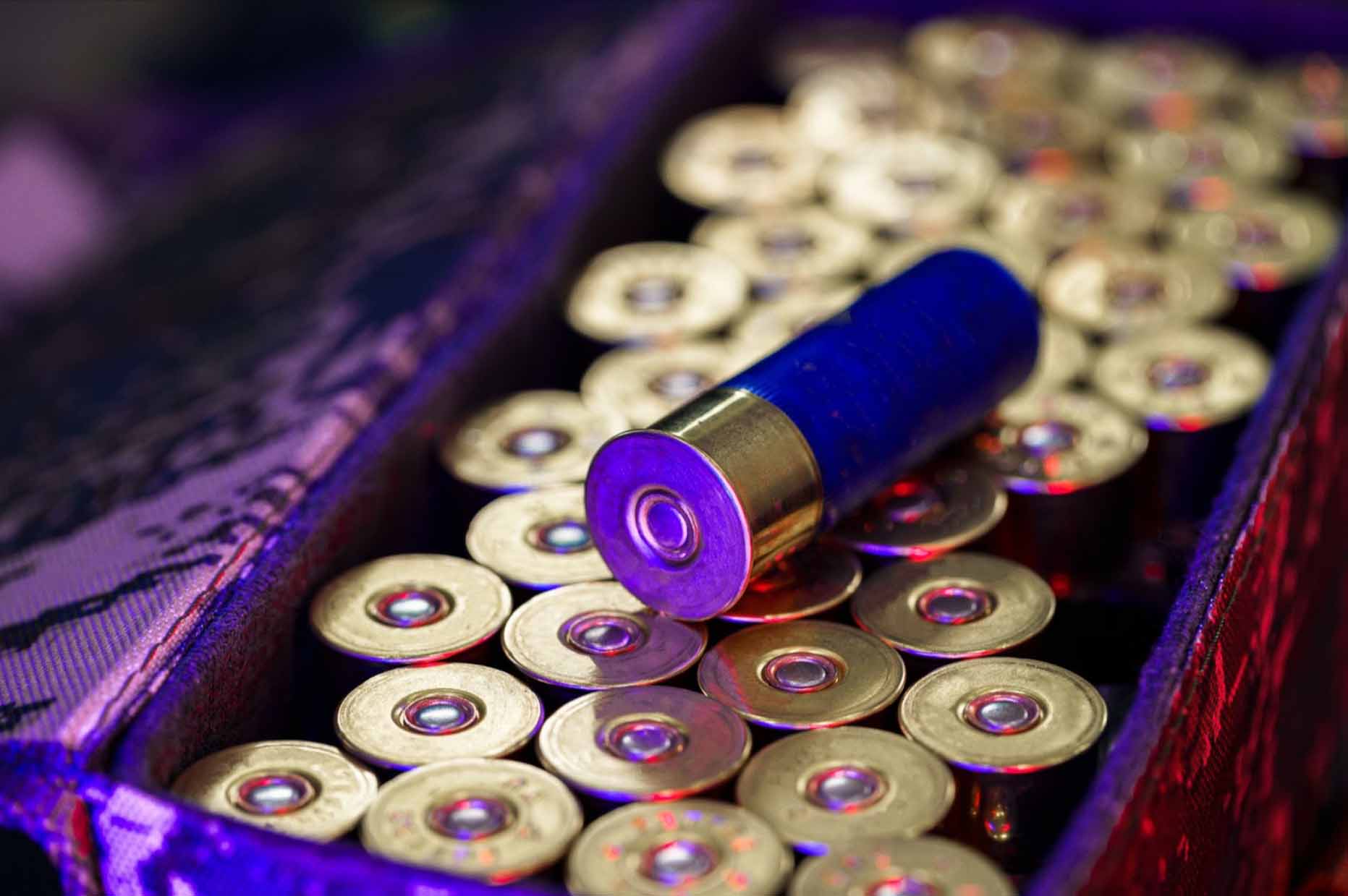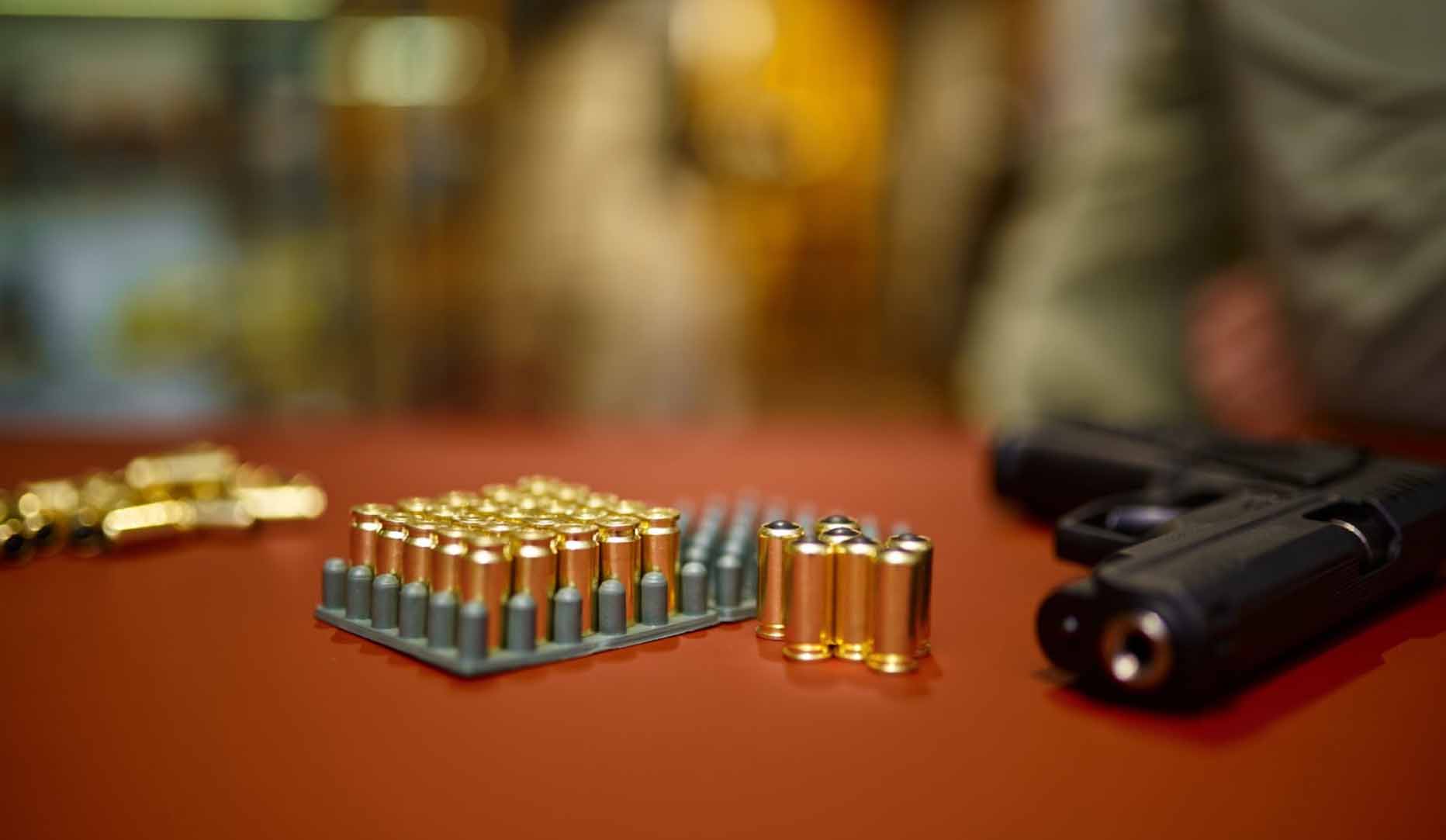Jun 28th 2024
Choosing the Right Ammunition for Your Firearm
Choosing the Right Ammunition for Your Firearm
Choosing the right ammunition for your firearm is crucial for performance, safety, and achieving your shooting goals. This comprehensive guide will walk you through the different types of ammunition, how to match ammo to your firearm, and essential safety considerations. We'll divide this guide into three parts for easy reference and image formatting.
The Components of Ammunition
Ammunition consists of four primary components: the bullet, case, powder, and primer. Each plays a vital role in the firing process. The bullet is the projectile that is fired from the firearm. The case holds all the components together. The powder provides the explosive energy to propel the bullet, and the primer ignites the powder.
Bullet Types and Uses
Bullets come in various types, each designed for specific purposes. Common types include full metal jacket (FMJ), hollow point (HP), soft point (SP), and ballistic tip. FMJ bullets are often used for practice and target shooting because they are inexpensive and reliable. HP bullets expand upon impact, making them ideal for self-defense and hunting. SP bullets offer controlled expansion and deeper penetration, making them suitable for hunting bigger game. Ballistic tip bullets combine accuracy and expansion and are often used in long-range shooting and hunting.
Calibers and Gauges
Caliber refers to the diameter of the bullet or the internal diameter of the firearm's barrel. Common calibers include .22, 9mm, .45, and .308. Shotguns use gauges instead of calibers, with 12 gauge being the most popular. Selecting the correct caliber or gauge is critical for safety and performance. Using the wrong size can damage your firearm and pose a significant safety risk.
Matching Ammunition to Your Firearm
Choosing the right ammunition means matching it to your firearm's specifications. Always refer to your firearm's owner manual or the markings on the barrel to determine the correct caliber or gauge.
Handguns
Popular handgun calibers include .22 LR, .380 ACP, 9mm, .40 S&W, and .45 ACP. Each caliber has pros and cons in terms of recoil, stopping power, and availability. 9mm is widely used for self-defense and law enforcement due to its balance of power and manageable recoil.
Rifles
Rifles use a wide range of calibers depending on their purpose. Common rifle calibers include .22 LR for small game hunting and target practice, .223 Remington for varmint and competition shooting, and .308 Winchester for hunting big game and long-range shooting. Selecting the right caliber depends on what you plan to shoot and the distance you'll be shooting.
Shotguns
Shotguns use gauges rather than calibers, with 12 gauge being the most common. Shotguns can fire different types of ammunition, including birdshot, buckshot, and slugs. Birdshot is used for hunting birds and small game, buckshot for home defense and larger game, and slugs for big game hunting and longer-range shooting.

Self-Defense Ammunition
When choosing ammunition for self-defense, reliability and stopping power are paramount. Hollow point bullets are preferred because they expand upon impact, creating a larger wound channel and reducing the risk of over-penetration. Popular self-defense calibers include 9mm, .40 S&W, and .45 ACP.
Considerations for Concealed Carry
For concealed carry, the ammunition should balance stopping power with manageable recoil. 9mm hollow points are popular due to their effectiveness and controllability. It's also important to regularly practice with your chosen self-defense ammo to ensure reliability and familiarity.
Home Defense
For home defense, ammunition that minimizes the risk of over-penetration is crucial to protect bystanders in the home. Shotguns loaded with buckshot or handguns with hollow point bullets are often recommended. The goal is to stop an intruder effectively without the bullets passing through walls and endangering others.
Hunting Ammunition
Selecting the right ammunition for hunting depends on the game you are pursuing. The bullet type, caliber, and performance characteristics must match the requirements for ethically and effectively taking down your target. Choosing the correct ammunition ensures a humane kill and maximizes your hunting success.
Small Game Hunting
For small game hunting, such as rabbits and squirrels, the .22 LR is a popular choice due to its low recoil and sufficient power. Soft point or hollow point bullets are effective for ensuring a quick, humane kill.
Medium Game Hunting
Calibers such as .243 Winchester, .270 Winchester, and .30-30 Winchester are commonly used for medium game, like deer. These calibers offer a good balance of power and manageable recoil. Soft point and ballistic tip bullets are preferred for their expansion and penetration capabilities.
Large Game Hunting
For large games like elk or moose, more powerful calibers like .30-06 Springfield, .300 Winchester Magnum, and .338 Winchester Magnum are used. These calibers provide the necessary stopping power and penetration to take down large animals humanely. Choosing bullets designed for deep penetration and controlled expansion is critical.
Target and Competition Shooting
Accuracy, consistency, and cost are key factors when selecting ammunition for target and competition shooting. Full metal jacket (FMJ) bullets are frequently used for these purposes due to their reliable performance and lower cost compared to specialized hunting or self-defense rounds.
Handgun Competitions
In handgun competitions like IDPA or USPSA, 9mm FMJ rounds are popular for their low recoil and affordability. It's important to use ammunition that cycles reliably in your firearm and meets the power factor requirements of the competition.
Rifle Competitions
The choice of ammunition for rifle competitions depends on the type of match. In precision shooting competitions, like PRS, calibers such as 6.5 Creedmoor and .308 Winchester are common due to their accuracy and long-range capabilities. For high-power service rifle matches, a .223 Remington is frequently used.
Shotgun Competitions
Shotgun competitions, like sporting clays or trap shooting, typically use target loads with small shot sizes. The consistency of the ammunition is crucial for maintaining performance and accuracy across multiple shooting rounds. A bore light can help you see inside the barrel more clearly.
Inspecting the Firing Pin and Springs
Ensure the firing pin moves freely and is not damaged or worn. Check the springs for any signs of fatigue or breakage, as these components are critical for the firearm's proper function.

Ammunition Safety Practices
Handling and storing ammunition safely is vital to prevent accidents and ensure reliability. Always follow these key safety practices when dealing with ammunition.
Proper Handling
When handling ammunition, keep it away from heat sources and open flames, avoid dropping it, and do not expose it to impact. Always store ammunition in a cool, dry place and use containers specifically designed for storage.
Storing Ammunition
Store ammunition in a cool, dry place, away from direct sunlight and extreme temperatures. Use airtight containers or ammo cans with desiccant packs to prevent moisture buildup and corrosion. Label your ammunition clearly to avoid confusion and ensure you always know what you have on hand.
Environmental Impact of Ammunition
Ammunition can have environmental impacts, particularly in terms of lead contamination. It's important to be aware of these impacts and choose environmentally friendly options.
Lead Contamination
Traditional lead-based ammunition can contribute to environmental contamination, particularly in shooting ranges and hunting areas. Lead can leach into the soil and water, posing a risk to wildlife and human health. To minimize this impact, consider using non-lead alternatives.
Non-Lead Ammunition
Non-lead ammunition, made from copper or steel, is becoming more widely available. These alternatives reduce environmental contamination without compromising performance. Many hunting regulations now require non-lead ammunition to protect wildlife.
Ammunition Regulations and Legal Considerations
Understanding the legal aspects of purchasing and owning ammunition is essential for every firearm owner. Regulations vary widely by location, so it's important to be informed.
Federal Regulations
Federal regulations govern the sale and possession of ammunition in the United States. For example, federal law prohibits the sale of armor-piercing ammunition to civilians and restricts the sale of ammunition to individuals under 18 for rifles or shotguns and under 21 for handguns.
State and Local Laws
State and local laws can further restrict ammunition sales and possession. Some states require background checks for ammunition purchases, while others restrict certain types of ammunition. Always check your local laws to ensure compliance.
Common Ammunition Myths and Misconceptions
Many myths and misconceptions about ammunition can lead to confusion or even dangerous situations. Understanding the facts can help you make better-informed decisions.
Myth: Bigger Caliber Means Better Stopping Power
One common myth is that a bigger caliber always means better stopping power. While larger calibers can deliver more energy, factors like bullet design, shot placement, and the specific situation are crucial. A well-placed shot with a smaller caliber can be more effective than a poorly placed shot with a larger one.
Myth: All Ammunition Is the Same
Not all ammunition is created equal. Differences in manufacturing quality, materials, and design can significantly affect performance. Using high-quality, reputable brands can enhance reliability and accuracy.
Choosing the Right Ammunition for Your Needs
Choosing the right ammunition for your firearm is crucial to responsible gun ownership. Understanding the different types of ammunition and their uses, matching ammo to your firearm, and following safety and legal guidelines can ensure optimal performance and safety.
For more in-depth guides and tips on firearms and ammunition, visit the Gunline Shooting blog page. Your journey to responsible and informed gun ownership starts here!

